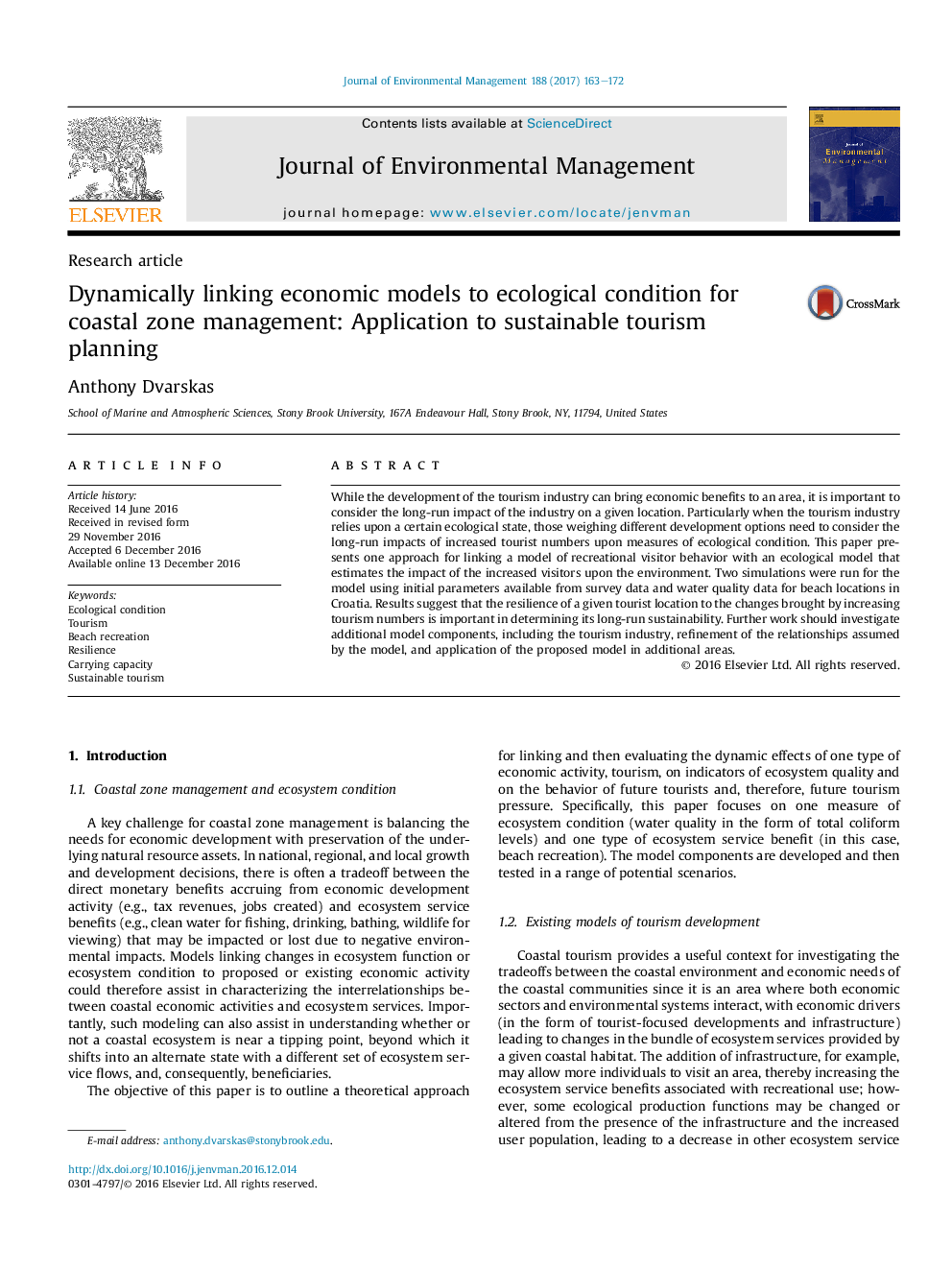| Article ID | Journal | Published Year | Pages | File Type |
|---|---|---|---|---|
| 5117134 | Journal of Environmental Management | 2017 | 10 Pages |
â¢A theoretical approach to link a recreational choice model to an ecological model is developed.â¢The combined model is parameterized using a case study of beach recreation in Croatia.â¢Dynamic results suggest long-run losses without coastal infrastructure investments.â¢Future application and model elaboration can inform coastal zone management.
While the development of the tourism industry can bring economic benefits to an area, it is important to consider the long-run impact of the industry on a given location. Particularly when the tourism industry relies upon a certain ecological state, those weighing different development options need to consider the long-run impacts of increased tourist numbers upon measures of ecological condition. This paper presents one approach for linking a model of recreational visitor behavior with an ecological model that estimates the impact of the increased visitors upon the environment. Two simulations were run for the model using initial parameters available from survey data and water quality data for beach locations in Croatia. Results suggest that the resilience of a given tourist location to the changes brought by increasing tourism numbers is important in determining its long-run sustainability. Further work should investigate additional model components, including the tourism industry, refinement of the relationships assumed by the model, and application of the proposed model in additional areas.
Graphical abstractDownload high-res image (139KB)Download full-size image
